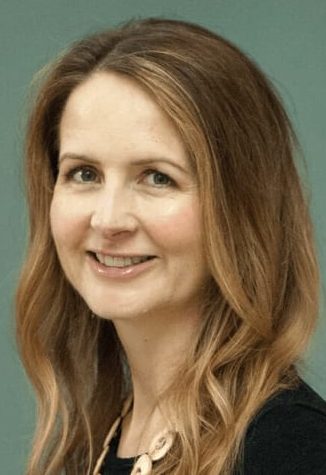Koru Kids raises £10m: interview with Rachel Carrell CEO
Category: Uncategorized
Koru Kids, the London-based startup that helps you find and manage childcare through an online platform, has raised £10 million in its third round of funding last week. The round is led by Atomico, with previous investors AlbionVC, Samos, JamJar, Global Founders Capital, Forward Partners and 7 Percent also participating. It brings the total amount raised by Koru Kids to £14.1 million.
We started tracking Koru Kids when it attended the MassChallenge UK accelerator back in 2016. Its inclusion in the high growth list ‘Startups 100’ last year, in addition to the equity the business has secured, means that it has hit 3 of our 8 triggers. This week we sat down with founder and CEO, Rachel Carrell, to hear more about how Koru Kids started and her plans for the future.

What’s the story behind Koru Kids?
I started Koru Kids back in 2016, after noticing how tough it was for parents to find a high quality and reliable nanny at a reasonable price. I could see that the process to find a nanny was often long and exhausting, only to ultimately end up with childcare that was expensive and of patchy quality. I wanted to build a much better childcare system from the ground up, so I started with after school care in London: recruiting, training, matching and managing nannies, and building a product to help us do that.
When did you realise you had product market fit?
Almost immediately – the issue in after school care is that there’s huge demand from parents. However, it’s hard to find professional carers and nannies who are willing to work for just a couple of hours a day that are also properly trained and have experience. Demand has never been in question for us.
What was your approach to securing initial investment? Did it become easier the second time?
Surprisingly I’ve always quite enjoyed fundraising. The process itself helps us grow as a business as it involves a lot of challenging conversations about company strategy and how we want to develop. Through each of our three fundraisings our strategy has come out stronger than when we began the process.
Our first round was mostly about my personal track record as I didn’t really have a team around me, but the second and third rounds were more focused on metrics. I’ve been very lucky in that the quality of help I’ve had has always been incredible, and we’ve always had a great choice of investors. All three rounds were oversubscribed, even after increasing the total amount we were taking on. We have an incredible roster of investors which allows us to be really selective about who we want to work with.
This comes from the fact that we’re building a business that other people can see the need for and identify with. Favours are the basic currency of the investing world, so the more people who talk to each other about your company, the more investors will show interest. We got a lot of introductions through people who really wanted to help us, even if they themselves couldn’t directly help us.

What are your plans now having completed your most recent round of funding?
For us it’s all about the product, so we’re currently hiring at all levels to help develop this so that we can properly service the market. We’ll also be looking at expanding geographically, but at the moment the majority of our focus is very much on product development.
What has been your experience growing your company as a female founder?
The most significant experience I’ve had as a female founder is having a baby in the middle of a funding round – it was a huge challenge. But, having said that, the fact that I wasn’t pregnant in our most recent fundraising round didn’t make it any easier. I guess when you’ve just had a baby people recognise the challenge that that brings with it and are really understanding.
Do you think there is enough support for female founders?
There is so much support out there for female founders: conferences, mentorships, so many resources. I certainly don’t think support is limited in this area.
What do you see as emerging trends in childcare?
The need for flexibility is something we are seeing more and more in childcare, with the rise in flexible and remote working, and part time gigs and shifts. Having services that facilitate this style of working is becoming more important than ever.
In terms of how childcare itself is changing, we’re seeing quite a divergence within the market. One half of the market it very focused on academic development, and teaching children to learn, specifically reading and writing, from earlier ages. But another school of thought is pushing back on this and wants to protect play, so that tension is really starting to play out.
Do you think there are enough available resources to help companies start and scale these days?
Starting up and finding product market fit is incredibly difficult, but equally, so is scaling your business. They are two very different challenges, and there could always be more resources made available. Having said that, there are some great programmes out there to support companies through these different stages. We participated in TechNation’s Upscale programme earlier this year, and that was really helpful for us; we definitely took a lot of learnings from it and it ultimately made us stronger.
We get asked all the time to take part in conferences, incubators and accelerators, and whilst it’s flattering to receive these invitations, each one demands a certain time commitment with no guarantee of a return, so some of them simply aren’t worth it. An entrepreneur’s time is the most precious resource in a startup so I try and protect that as much as possible.
*Disclaimer: Koru Kids shares significant shareholders with Beauhurst.